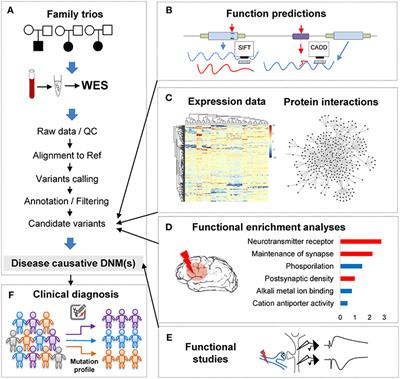REVIEW
Published on 03 Apr 2019
De novo Mutations From Whole Exome Sequencing in Neurodevelopmental and Psychiatric Disorders: From Discovery to Application

doi 10.3389/fgene.2019.00258
- 17,057 views
- 58 citations
15k
Total downloads
109k
Total views and downloads
REVIEW
Published on 03 Apr 2019

REVIEW
Published on 12 Feb 2019

PERSPECTIVE
Published on 18 Dec 2018

METHODS
Published on 06 Dec 2018

TECHNOLOGY REPORT
Published on 14 Nov 2018
